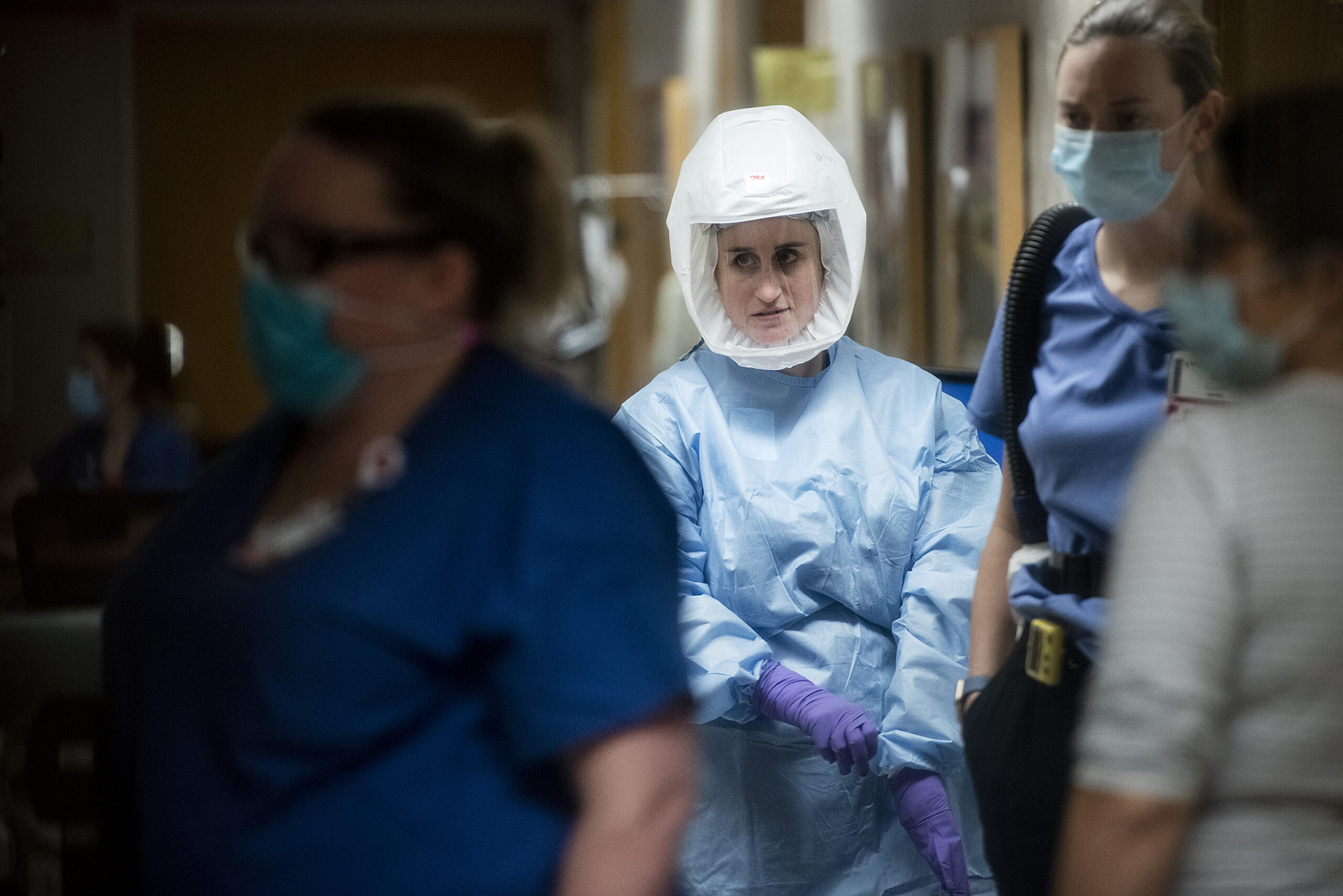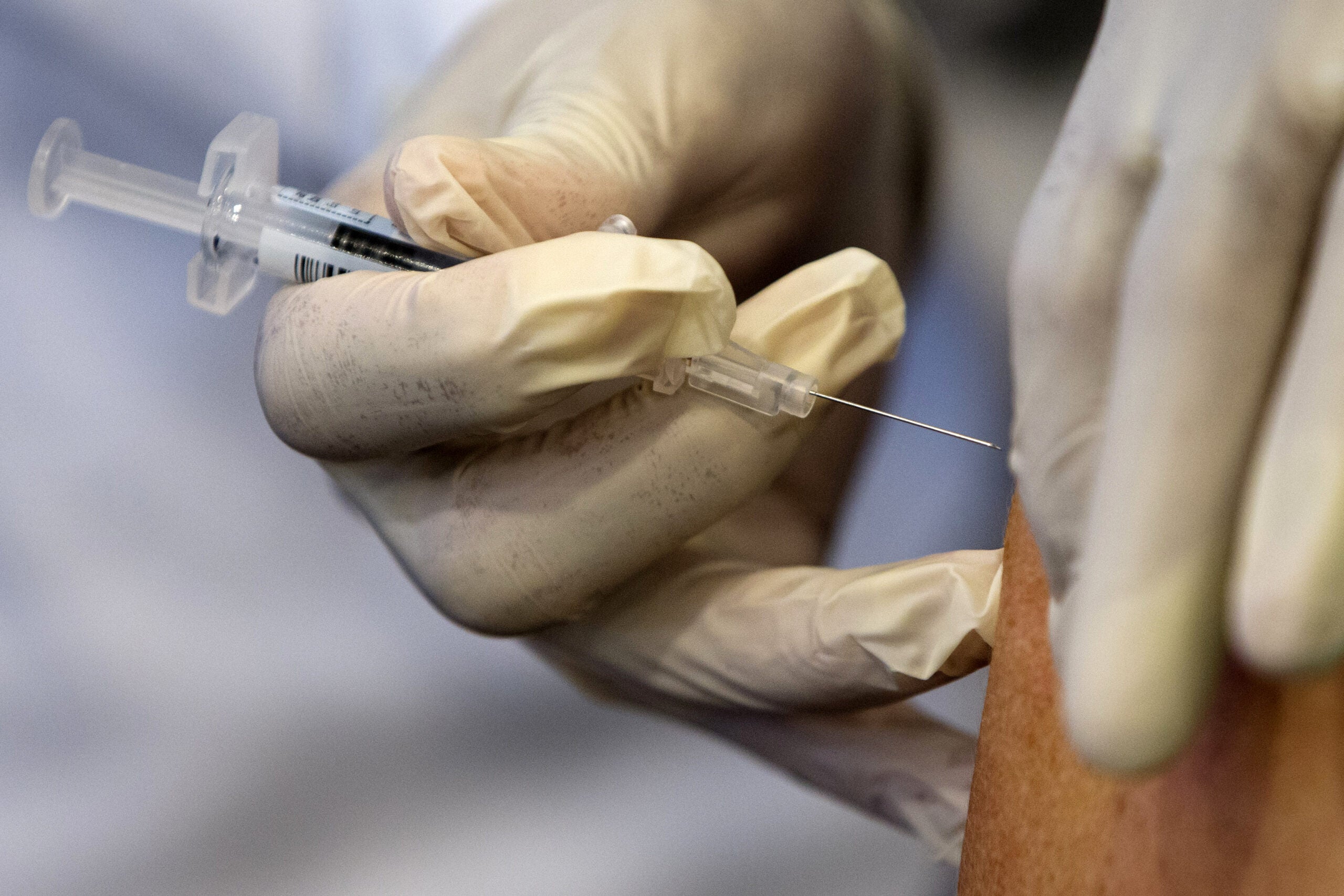Wisconsin health officials say they’re monitoring the emergence of a new COVID-19 variant called omicron as they continue to deal with a surge in new cases spurred by the virus’s delta variant.
On Friday, the World Health Organization announced a new COVID-19 variant had been identified in South Africa, which has been designated a “variant of concern” by the group.
The WHO alert said it’s not clear whether omicron is more transmissible than other variants or whether infection from omicron causes more severe disease compared to other variants like delta. But the organization did say preliminary evidence suggests there might be an increased risk of reinfection if a person has already contracted another coronavirus variant.
News with a little more humanity
WPR’s “Wisconsin Today” newsletter keeps you connected to the state you love without feeling overwhelmed. No paywall. No agenda. No corporate filter.
As of Sunday, the omicron variant has been identified by researchers in Botswana, the United Kingdom, Italy, Germany, Belgium, Israel, the Netherlands, Australia, Hong Kong and Canada.
Dr. Anthony Fauci, the director of the National Institute of Allergy and Infectious Diseases, said Sunday the U.S. Centers for Disease Control and Prevention hasn’t announced any cases in the U.S., but said, “inevitably, it will be here.”
President Joe Biden was briefed on omicron on Sunday by medical advisors including Fauci. During a Monday press conference, Biden urged calm and said the best protection against the variant is getting fully vaccinated and getting a booster shot.
“This variant is a cause for concern, not a cause for panic,” said Biden. “We have the best vaccines in the world and the best medicines, the best scientists, and we’re learning more every single day. And we’ll fight this variant with scientific and knowledgeable actions and speed, not chaos and confusion.”
Meanwhile, Wisconsin hospitals are in the midst of another surge of COVID-19 patients. As of Monday, the Wisconsin Hospital Association reported 1,432 COVID-19 hospitalizations, an increase of 60 percent since Oct. 30. WHA data shows that 391 patients hospitalized as of Monday are in ICU units.
That’s the most hospitalizations reported since Dec. 21, 2020. On Dec. 1, 2020, there were 415 COVID-19 patients in the ICU.
Wisconsin Hospital Association President Eric Borgerding said member institutions are busy with a combination of new coronavirus related illnesses and regular hospital visits, which are up compared to last fall.
“It has not let go of Wisconsin, and that shows up in various sorts of statistics,” said Borgerding.
He said at the same time, hospitals are tending to hundreds of COVID-19 patients from nursing homes who could be discharged but aren’t being accepted by the facilities they live at. Borgerding said that is exacerbating space and staffing challenges.
The number of new positive cases of coronavirus has risen sharply during November, according to Wisconsin Department of Health Services data. On the Wednesday before the Thanksgiving holiday, DHS reported 3,677 new, confirmed coronavirus cases. That brought the state’s seven-day average of new cases to 3,170, the highest seven-day average recorded since Dec. 15, 2020.
Dr. Nasia Safdar, the director of infection control at UW Hospitals and Clinics, said she and other health care experts are wondering whether the omicron variant will be more contagious, how serious infections will be and how effective current vaccines will be in combating it. Safdar said it’s important to remember that even if existing vaccines are less effective on this new strain, they are still likely to offer some protection.
“Every decision that we make in this pandemic is going to be a trade-off between the risk and the benefit, and it’s what can one do to mitigate that risk,” said Safdar. “And of course, we don’t know how this is going to unfold fully yet. But it is a reminder that let’s do everything that we can on our end to mitigate things.”
Safdar said that means getting vaccinated, getting booster shots and wearing masks when attending crowded, indoor events.
Wisconsin Public Radio, © Copyright 2025, Board of Regents of the University of Wisconsin System and Wisconsin Educational Communications Board.






